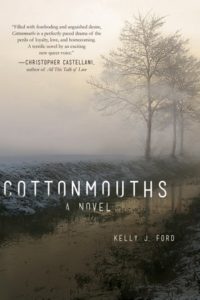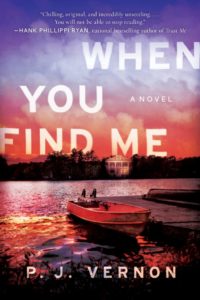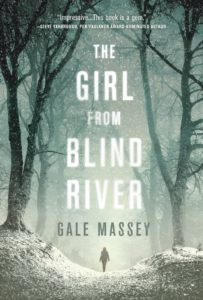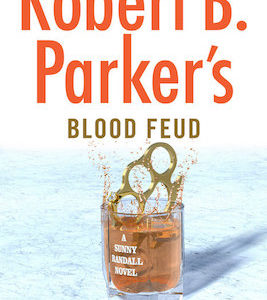The #OwnVoices movement appears to be changing publishing at breakneck speed. A-list literary agents and Big Five editors are actively adding diversity to their lists. Seemingly gone are the days when queer authors relied on niche presses to get their work out into the world. With wind in our sails—and full-throated support from industry pros—we finally find ourselves on a level playing field, positioned for mainstream success. Right?
Real talk: Maybe.
#OwnVoices seeks to promote works about marginalized characters by authors who share their characters’ marginalization. Think runaway hit The Hate U Give by Angie Thomas. But what are the actual experiences for queer writers of crime fiction? The genre relies on “it could happen to me” for entertainment value, but meander into any bookstore and take a look at those mystery and thriller shelves. Where is The Gay on the Train? Gone Gay? The [Queer] Couple Next Door?
Great questions that led me to team up with a couple of my favorite queers for a candid discussion on what it’s like for queer debut crime authors. My wickedly talented accomplices? Kelly J. Ford (author of Cottonmouths, named one of 2017’s best books of the year by the Los Angeles Review) and Gale Massey (author of The Girl From Blind River, crime fiction selection Book of the Month Club July 2018). And having abandoned gainful employment to write When You Find Me—a critically acclaimed Southern Gothic suspense—is yours truly, P. J. Vernon.
P. J. Vernon: After having the best time with y’all at Bouchercon, I’m thrilled to participate in this Super Gay™ and very timely roundtable. I’d trust no two authors more to deliver real talk on what it’s like for queer writers in today’s publishing industry.
As debut novelists, let’s start with greatest fears on the journey to mainstream acceptance and approval.
Kelly J. Ford: The crime writing community is already warm and welcoming. But the queer crime writing community? It’s like finding lost family.
To your question, any fears I carried had nothing to do with being queer and everything to do with craft insecurities: Is it good enough? Will I embarrass myself? Does the crime make sense? Will Arkansas meth producers come after me with pitchforks because I didn’t do enough research on their occupation?
I had some initial hesitation about my queer characters and how others would react. But being in great workshops and a strong writing community helped redirect any anxieties I had about my protagonist’s sexuality to anxieties about my craft. Yay?
I guess in the back of my mind, I wonder if a queer protagonist might prevent someone from picking up my book. I try not to let those thoughts infect my process, though. I can only control what I can control: the content. Not whether or not a mainstream audience finds my book and enjoys it. I certainly hope that happens. I mean, who doesn’t? Queer or straight: That hope binds us all.
Gale Massey: Doors are opening for #OwnVoices now, but as free speech continues to be threatened, I question whether publishers might step back from supporting diverse authors, that this trend toward inclusivity might incur some backlash.
P. J. Vernon: We all share that fear. History is riddled with destructive counter-movements.
Kelly J. Ford: I can’t see the pushback from publishers happening. Perhaps I’m a Pollyanna. Anecdotally, you do hear things like: there’s not a big enough audience for queer books. The subtext being: the story has to be about more than being queer. As crime authors, we have a leg up on that front. But the “breakouts” seem to be more on the literary side.
P. J. Vernon: Are there queer crime writers making it in the mainstream? [Note to readers: we all Googled queer crime writers at the same time.]
Kelly J. Ford: We are the worst queers.
P. J. Vernon: The first hit is an article called “Dangerous Dykes.” They mention Tess Gerritsen, Mo Hayder, Val McDermid, Stella Duffy, Natasha Cooper, and Karin Slaughter.
Kelly J. Ford: I had NO IDEA they were queer. I want to be a dangerous dyke.
Gale Massey: You already are. Own it.
P. J. Vernon: Wait, what do I get to be?
Kelly J. Ford: Let’s rebrand it to something with “queer”—after I Google words that begin with QU.
P. J. Vernon: Queen? Quaalude?
“My only rule: Be tenacious AF. Marketing, promo, pitching—be stubborn. Talent’s entirely learnable.”—P. J. VernonKelly J. Ford: To be fair, many of my cishet friends who are with Big 5 presses didn’t get the marketing support they expected. Other friends are with smaller presses and aren’t doing as well as I am. (TBH they think I’m doing well because they see me rolling, they hating. KIDDING.) Success is subjective and luck is critical.
Gale Massey: It seems that except for a few rainmakers, queer authors are paid far less and receive less advocacy than mainstream debut novelists. Many of us rely on small independent presses, thus, we get smaller advances and marketing budgets.
P. J. Vernon: The lion’s share of the marketing still falls on the author’s shoulders. Does being queer make this an even taller ask?
Kelly J. Ford: I don’t know that it’s true, but this is what I feel: I have to work harder at promotion because I’m queer. There’s a higher wall to climb to get noticed. I’m a hustler and super competitive despite being super sensitive. I go after things that I’m not qualified for, and I submit for conferences and festivals. I get rejected a lot, but I also have my small wins. Look, I’m happy to be the token queer at a conference if it means getting my work seen. Not everyone feels that way, and I respect that. But I’m all about getting my toe in the door. I will take your inch and make it look like a mile, sir.
Gale Massey: Are you for hire?
P. J. Vernon: My only rule: Be tenacious AF. Marketing, promo, pitching—be stubborn. Talent’s entirely learnable. But it does raise an important point: Does the prospect of marketability influence the creative process?
Disclosure: it influenced mine. At least as a newbie wracked by ridiculous fears like “will someone steal my idea?” or “did I steal someone’s idea by accident?” (SPOILER: The answer to both is “yes” and no one cares). My instincts were to center When You Find Me around a gay couple. Obviously this didn’t happen because—justified or not—I was afraid no one would offer on it. I love my female protagonist, but the truth is, she might’ve been a he in a world where I didn’t fear a tilted stage.
Gale Massey: On that note, how important is it for an agent or publisher to be queer friendly? Is publishing as queer yet another coming out?
P. J. Vernon: When you’re queer, you never stop coming out. New friends, new neighbors, new books—a part of me is fearful that a new face won’t be the ally I’d hoped. This extends to agents, editors, reviewers, etc. But I did have an encouraging experience.
After securing a book offer (thank you #DVpit!), I took the deal to agents for representation. The catch: I’d written another manuscript, and they had to be game to represent it, too. And it’s really gay. Like, “Grindr thriller” gay and hinging on toxic same-sex relationships. When my agent came back with “It’s 2018 and we can have a gay thriller,” it was a powerful moment for me. “Breaking out” with a queer novel felt possible.
But what if he hadn’t? Would I have folded and stuck to heteronormative characters? A friend, Sarah L. Johnson, walked away from an offer because the agent asked her to strip out the queerness (thankfully her apocalyptic debut Infractus made it to shelves as-is). I hope I’d be brave enough to walk away, too.
Kelly J. Ford: Total agreement with PJ: you never stop coming out. That includes the querying and submission process. Unagented authors often worry if they should out themselves because it might “turn off” agents. But who wants an agent who would be appalled to find out you or your characters are queer?
Were there agents who turned my work down because of that? Who knows. I don’t spend much time thinking about it. I know how that sounds: I don’t care. I do! But I’m a super sensitive person. If I let my anxieties about the industry or perception about queerness take over, I’d be unproductive. My focus is on putting out my best work and doing what I can to help the queer authors who will come after me. The only way I can do that is to BE BEST. (LOL) That way, the queer younguns will have some comps when they’re ready to query.
P. J. Vernon: Kelly, didn’t I see a tweet that Cottonmouths was used as a comp by a new author? Victory!
“When you’re queer, you never stop coming out. New friends, new neighbors, new books—a part of me is fearful that a new face won’t be the ally I’d hoped.”—Gale MasseyKelly J. Ford: Yes! When I queried, there were no queer grit lit comps I could use. So I had to say something like, if this book made out with this book, it would be Cottonmouths. It worked. But I’m glad that an author can use my book as a comp instead of making queer book babies from straight options.
Also, I really want to read your Grindr novel, PJ.
P. J. Vernon: “Queer book babies from straight options.” <3
If everyone agrees we need queer authors writing crime fiction about queer characters, should publishers fix the lack of representation? Or do we need a story that’s so damn good, it catches fire and its queerness becomes incidental?
Kelly J. Ford: Damn good books are out there. What’s lacking is awareness. Would it be great to have presses publish and promote more queer books without requiring a high ROI? Well, duh. But publishing is a business. If publishers aren’t seeing the “appetite” for queer books, then it could be a risk they’re not willing to take.
Relatability—and likeability, can I get an ugh?—is a huge factor for many readers. For those readers, marginalized authors have some steep hills to climb to reach them. But, many readers aren’t aware how homogenous their reading lists are until someone points it out. Reading diversely creates empathy, and Lord knows we need more of that.
That’s why I love the push for reading diversely. All those teens devouring queer YA books are gonna need something to read when they get older. Hop to it, and pray for #begaydocrime readers.
Gale Massey: Preach! Last week I met with a high school class who had read my novel. It was encouraging to meet students with open hearts and minds. There were several LGBTQ teens who discussed the importance of seeing themselves and their experiences reflected in a book that had been selected and taught by a teacher they respected and admired.
P. J. Vernon: Those students make a great point: Crime fiction relies on seeing yourself in the characters. How do queer characters change this? What if the “Girl” on the train was from a marginalized community? How would her interactions with police change? Would society tolerate her misbehavior the same way? And how the hell do we manage what is inherently different about marginalized characters against the relatability Kelly mentioned?
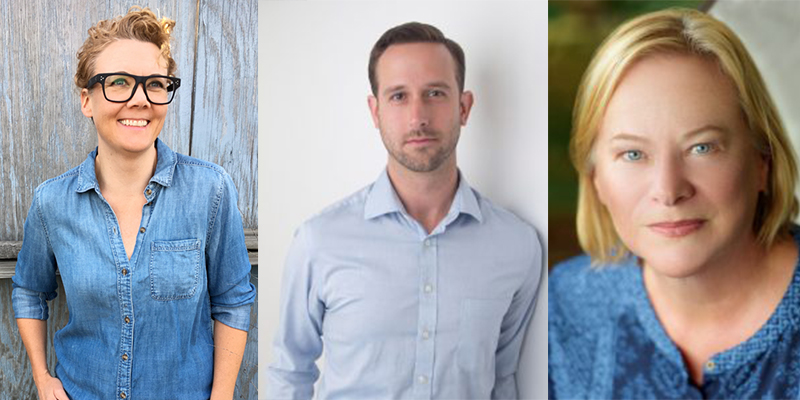 FROM LEFT: Kelly J. Ford, P.J. Vernon, and Gale Massey
FROM LEFT: Kelly J. Ford, P.J. Vernon, and Gale Massey
Gale Massey: The girl on the train’s behavior was tolerated precisely because she was a mainstream character. I don’t believe marginalized characters have that same latitude. Queer characters going off the rails risk fortifying otherness in the mainstream consciousness. Inclusivity has come a long way, but it will take a skilled writer to present that character to the larger reading world.
Kelly J. Ford: Seems like there’s more freedom for characters to be “bad” when they’re white and straight because there are so many more stories being published for and about that audience. Spin the wheel: you get all the characters! You don’t have to worry about being a bad influence because you might be one of a handful of authors publishing books with queer characters in a given year.
I always have the tropes and harmful representation in mind when I write and revise. Always. I question whether or not I’m contributing to tropes—tropes that straight writers don’t have to consider. Bury your gays, anyone?
Gale Massey: That’s always on my mind, too.
P. J. Vernon: An outlet gave When You Find Me well-earned trigger warnings because of the difficult topics explored. However, the taboos fall within conventional (hetero) boundaries, so the book’s mainstream. One of my greatest fears is being told a thriller that dives into queer culture is “too edgy”—even in the absence of the horrifying plot elements cishet narratives routinely handle.
But mainstream perspectives aside, how about the reception from our own community?
Kelly J. Ford: A ton of writers provide the Happily Ever Afters and Justice! that many queer readers long for after seeing themselves as tragic figures in pop culture since forever and ever amen. But I’m writing crime from the gray area between good and bad. That’s where I have the most fun. That also means I agonize over my characters: who lives, who dies, and how much ”fun” they have doing it.
Still. Damn the agony; I’m gonna write some Killer Queers. (That should be our new designation, btw.) The heart wants what it wants, PJ. But I’ll always be mindful and anxious about the reception from a queer audience. That’s my burden to bear.
Gale Massey: I was surprised when a friend asked, “Why didn’t you write us a gay book?”
P. J. Vernon: What a coincidence—I’ve had similar questions. Why didn’t you write us a gay book?
“All those teens devouring queer YA books are gonna need something to read when they get older. Hop to it, and pray for #begaydocrime readers.”—Kelly FordGale Massey: I wrote an American story. But there is a queer character in my novel who is tormented by internalized homophobia, so he’s a victim and at times heroic and also the bad guy. I was trying to get at a very interior conflict that shows how the complications of small town bigotry and family dysfunction can shape a boy into a man. I wasn’t sure how well I had portrayed him until the reviews came in. He’s such a complicated character that he earns a little sympathy, but he still behaves rather badly. He lived, by the way. I’m not prepared to kill my gays. Yet. The creative path I’m on seems to be working for me, so I try and keep marketing questions at bay while I’m writing. It sounds like we’re all aware of that particular struggle.
Kelly J. Ford: PJ wrote that my book is “queer AF.” So I don’t get the same question as Gale. What I do hear is, “Why is your book so dark and depressing?” Often followed by an “ugh.” Well, Becky, it’s because I grew up in Arkansas and come from a long line of deviants and criminals…
P. J. Vernon: Becky is the absolute pits. And on the topic of changing Becky’s heart and mind, what are our greatest hopes for the future of queer crime fiction?
Kelly J. Ford: I want more queer characters, across the board. I want so many queer characters that we get amazing queer villains and Big Bads—because there will be so many good queer characters to balance them out. Just like a straight audience has. I don’t care who writes the books as long as they’re written with the same care toward not writing shitty and/or harmful queer characters. I want equality in the agony.
P. J. Vernon: “Equality in Agony”—y’all heard it from Kelly here first!
I want conversations like these to become irrelevant. When queer characters and queer authors are a dime a dozen—and making dozens of dimes for publishers—we won’t need ‘em.
Until then, there’s no one else I’d rather tackle these topics with. When you’re queer, you’re family!
Gale Massey: I’d like to see the trend of offering panels and forums for diverse writers at conferences continued.
Kelly J. Ford: Not to get cheesy, but I’m gonna get cheesy: One of the best things about Bouchercon was meeting the two of you. I love our little Queer Crime family and I hope we can grow it with some new members.
P. J. Vernon: Btw, we’re recruiting—because that’s what queers do, your mamma was right—at Bouchercon 2019 in Dallas. We’ll be at the bar. Until then, tah!


